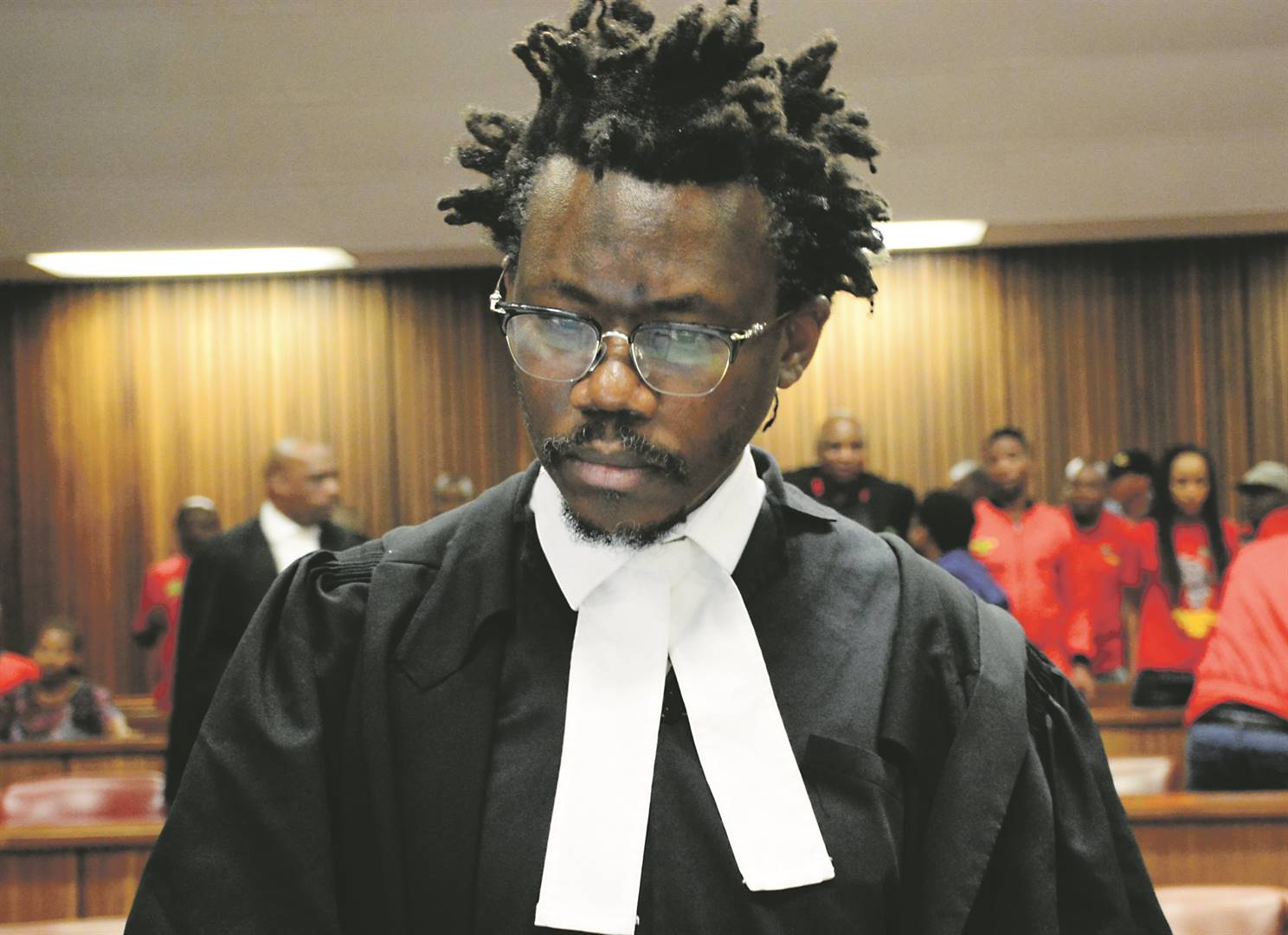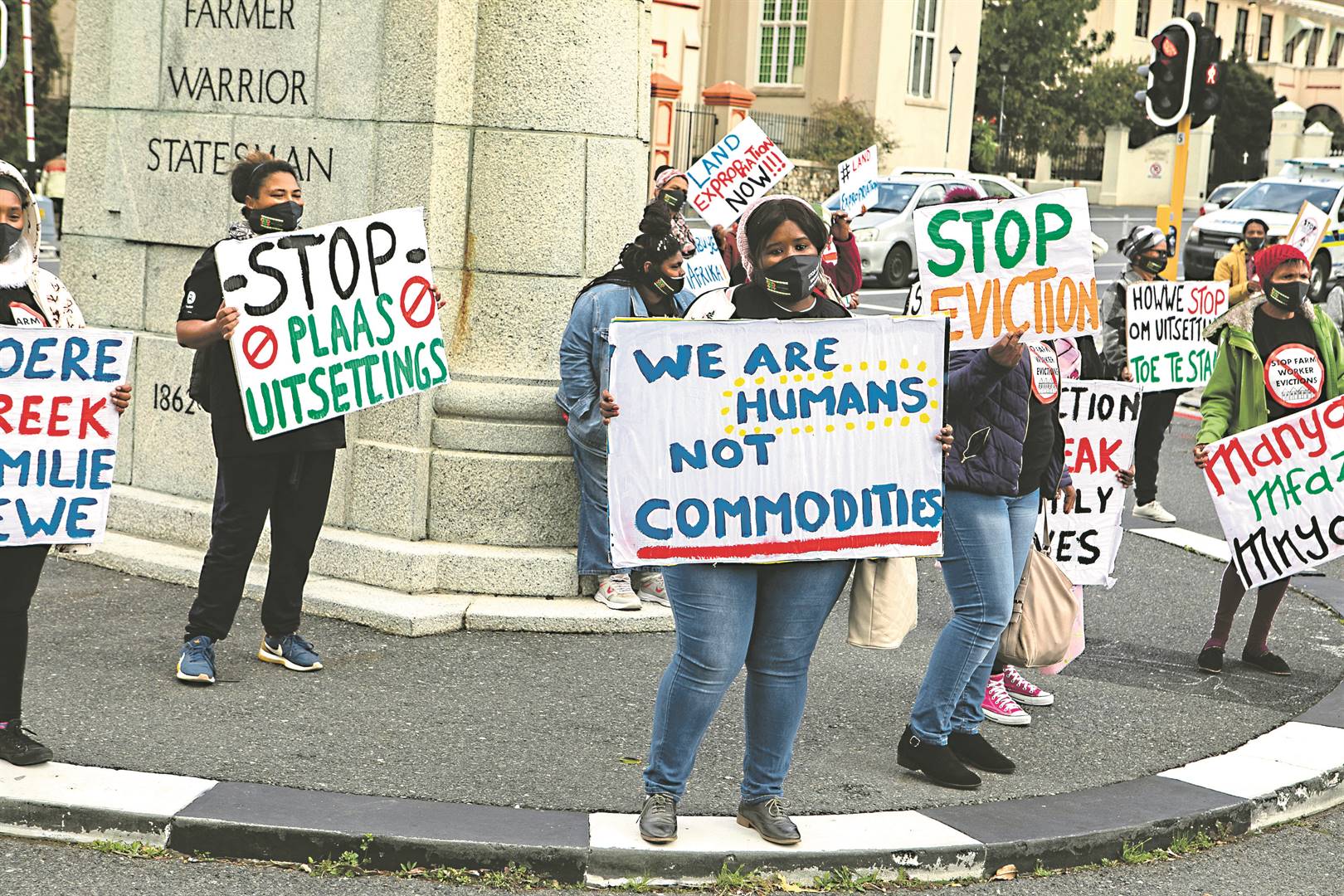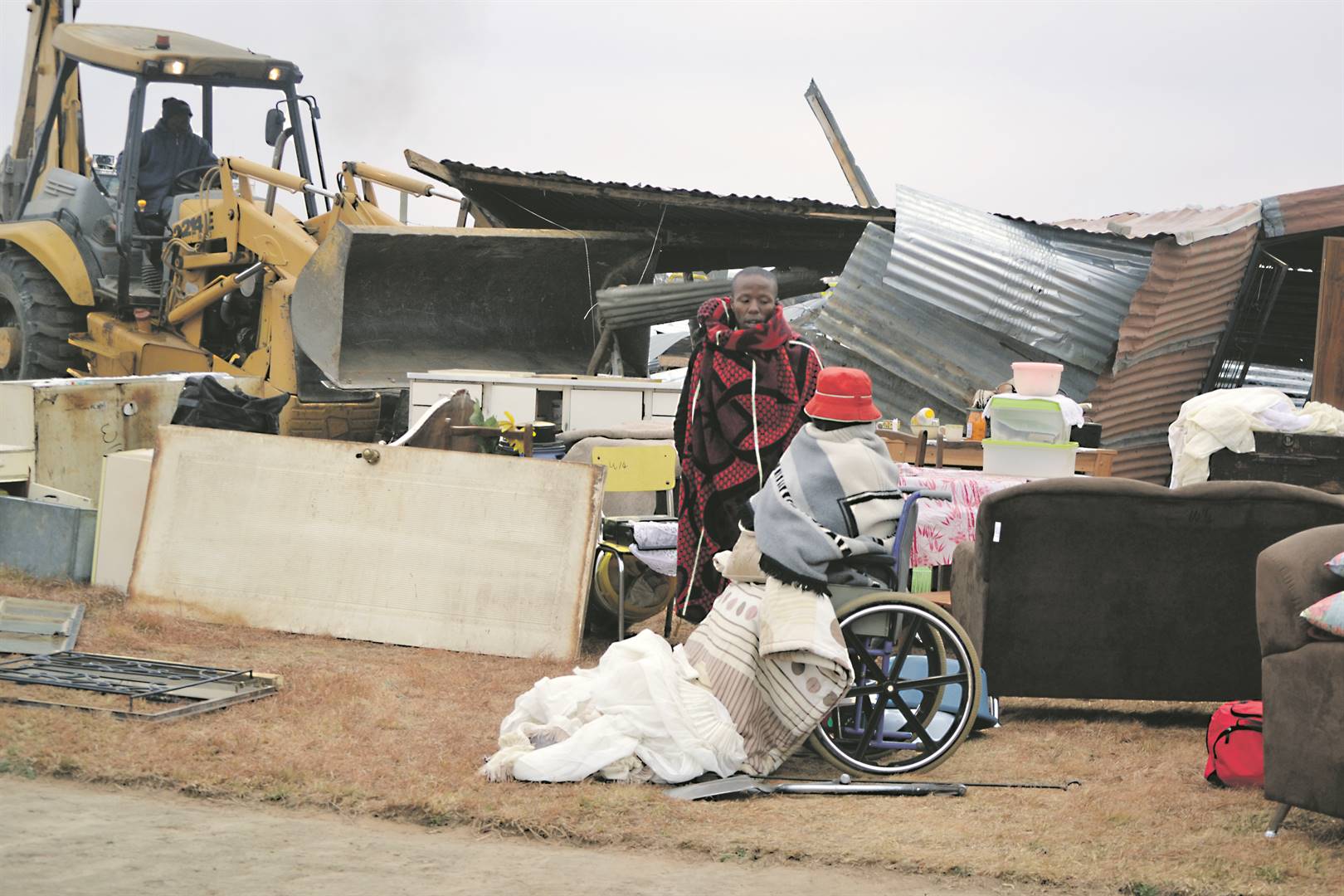
Advocate Tembeka Ngcukaitobi’s latest book, Land Matters: South Africa’s Failed Reforms and the Road Ahead, is anchored in history. Its elegant and important arguments make it a critical read for researchers, scholars, policymakers, lawyers and activists.
Following The Land is Ours, which was published in 2018, Land Matters argues that those who work the land should be its primary beneficiaries. He also challenges government to craft a more adequate response to those occupying land, instead of the current system that tends to prioritise their criminalisation.
Ngcukaitobi spoke to Yvonne Phyllis about his book.
Phylliss: You write that we should take the question of ancestral land seriously and you say it should not be contentious, and sometimes it is. So when we talk about ancestral land, what land are we talking about? What forms part of ancestral land?
When I say the ancestral land should not be contentious, what I mean is that if we look at [Jan] Van Riebeeck’s arrival in 1652, he carefully recorded the people he met and the Khoikhoi tribes that he met and his encounters with them, including at what point they took which land.
The same thing, if you look at the large British occupation of the Eastern Cape – that part of 1820 when we had 3 500 people coming in at once – even with those settlers, the records are quite clear.
I mean, we know that they settled in Bathurst. We know that they went to East London in 1821, the following year.
We know that they spread around because they found the area in Bathurst to be too small, but we also know who they met, which Xhosa tribes and how they encountered them.
If you go to the Zululand side, we also know pretty much when [King] Shaka met the first white man. We know who that white man was. We also know when the large group of the Afrikaners came.
We know that when they arrived there, they found Dingane [ka Senzangakhona Zulu]. We know there were encounters with Dingane; we know that they had an alliance with Mpande [Shaka’s brother] and, as a result of that alliance, conspired to kill Dingane. We know that subsequent to that, Mpande granted them land and we know which land it was.
READ: ‘A further example of aggravated contempt,’ Zondo commission argues in court against Zuma
The idea that we cannot go back too far because there will be complexity as to an intertribal conflict is not borne out by historical records. In fact, one of the strange things I find is that there was care in what the colonists recorded and sent back to England.
There were three types of these colonists. You had these missionaries who went around asking people to be converted, ‘civilising’ them. Then you had people who were just on a jol [having a good time] – just visitors – and they wrote down which tribes they encountered.
And then you had proper colonists – people who came here as a result of this idea that they want to expand the scope of the British Empire. All of those three are the main sources we use when we reconstruct the past.
We use their sources. On the Xhosa side, we are lacking in written sources. The tendency there is to depend on word of mouth. The remarkable thing is how candid the accounts of the travellers were … they coincide with the accounts of the missionaries and also with accounts of colonists. We pretty much know that background; we know who was where and when. That’s why I argue that this should not be too contentious.
Ancestral land is a contentious term itself. It’s the idea that black people use now – ‘land of our ancestors’. We still say it’s the land of our ancestors, which marks the distinction between who holds formal title versus who holds historical title. We still claim that this is our land, but we know that as a matter of formal title, it’s not, because someone else’s name is in the deeds office. However, the claim that actually this land belongs to our ancestors is simply an affirmation of a historical fact.
So that’s really the point I made.
Phyllis: My father is not quite convinced that we can only base it [land claims] on historical records, as you’ve explained, or on what happened in history. He strongly feels that, on the issue of ancestral land, the fact that several generations of his family, including him, have worked on one farm for the same white family for three generations must count for something.
He makes the point that the umbilical cords of our family members are buried in this land and so are they. And therefore this land is the land of our ancestors because they worked it and lived there.
That’s true. I think the claim in that case of ‘ancestral’ is a metaphorical claim. I think there’s power in that. What I’ve tried to suggest is looking at different forms of the sources of tenure. One form of tenure is pure ownership – ‘my father owned this piece of ground and therefore it’s mine by reason of inheritance’.
However, that purity in argumentation already [foresees] an exclusion, so many people are then excluded. But what you actually want is a much more flexible system that recognises different ways in which tenure is acquired.
One of them is that it is acquired by labour. It’s the exchange of labour – that’s one of the ways in which tenure is acquired. That form of labour tenure is actually not uniquely South African or uniquely African. In fact, that’s precisely the point that the colonists made when they occupied the US. And their own theorists justified their acquisition of the original title by virtue of combining what they call their labour with a piece of ground that produces ownership.
So they used it for a perverse reason – ‘I’ve worked the land and therefore it produces ownership’ – but they never recognised the other labour that went into the land; the labour of the native people and the indigenous people that went into the land. So, another source of tenure is labour, and that’s the assertion that is made by many labour tenants.
It’s recognised in our law, but that recognition is precarious because you have to prove a certain element. But it can be expanded into a powerful argument.
One of the reasons there has been an impoverishment in our sort of land reclaiming theories is that we tend to depend a lot on the original title. That original title itself is linked to notions of private property and lacks the elements of how people actually acquire tenure over land.
So the tendency in so-called labour tenancy claims is that if you make a claim – let’s say under the Restitution of Land Rights Act, which is based on whether you lost title after June 19 1913 – the theoretical foundation of those claims is that the nature of the title must have been pure ownership. If that was an alternative title, like a labour tenant, you don’t actually get restitution, you might get compensation.
This is because the entire model of land is based on this idea of ownership. When the land is restituted, what is restituted is ownership.
READ: Floyd Shivambu | Thabo Mbeki’s interpretation of China policy is flawed
I think that is an impoverished way of looking at history because we know about labour, we know that through systems of … forcible labour [the workers] not only contributed to productivity, the commercial productivity of the farm owners, but also created new cultures and they connected to the land.
One of the ways of connecting to the land that the Xhosa people use is what you’re saying – inkaba [the umbilical cord]. One of them is where you were circumcised. I mean, this is a powerful thing. ‘Wolukele phi [where were you circumcised]’ is usually an affirmation, or ‘uzalelwe phi [where were you born]’, which is the idea of inkaba.
Alternatively, ‘utatakho ungcwatyelwe phi [where your father is buried]’. All of those are ways in which people relate to the land.
My thesis is to try to break the Eurocentric notion that basically drives a land reform programme that refuses to accept alternative forms of tenure and the ways in which land is held.
I think there are groups of people who are overlooked, largely because of the ways in which we conceive of our relationship to the land – a very Eurocentric way of understanding our relationship to the land.
One of the ways to resolve the land crisis is to simply give title to people who have worked on it. To say to people: ‘You may not have been the only one who has worked on the land and the land may not have been registered in your name, but your family graves are here, you should get recognition title, full title over particular pieces of land.’
You see, what happened in fact – it’s interesting that white farmers didn’t constantly change families. They stuck with one family, so you then got born into a family of labourers. It was like a slave-master relationship. They didn’t change people a lot.
READ: Editorial | Ingonyama victory a leg up for the poor
It’s unlike a factory, because in a factory, as soon as you lose an arm, they get rid of you. Although there were a lot of farm workers who lost tenure, many people stayed, generations and generations.
So there is no reason you can’t just say we know them, it’s 22 000 of them, let’s just cut the land that the farmers live in and give it to them as title.
And not pay the farmers any compensation, by the way.
So that’s the one category of land owners that do not deserve compensation. It’s people who have received compensation through the labour of their tenants – they should get no money whatsoever.
This article was first published by New Frame. It has been edited for length.
| ||||||||||||||||||||||||||||||
 |




 Publications
Publications
 Partners
Partners












